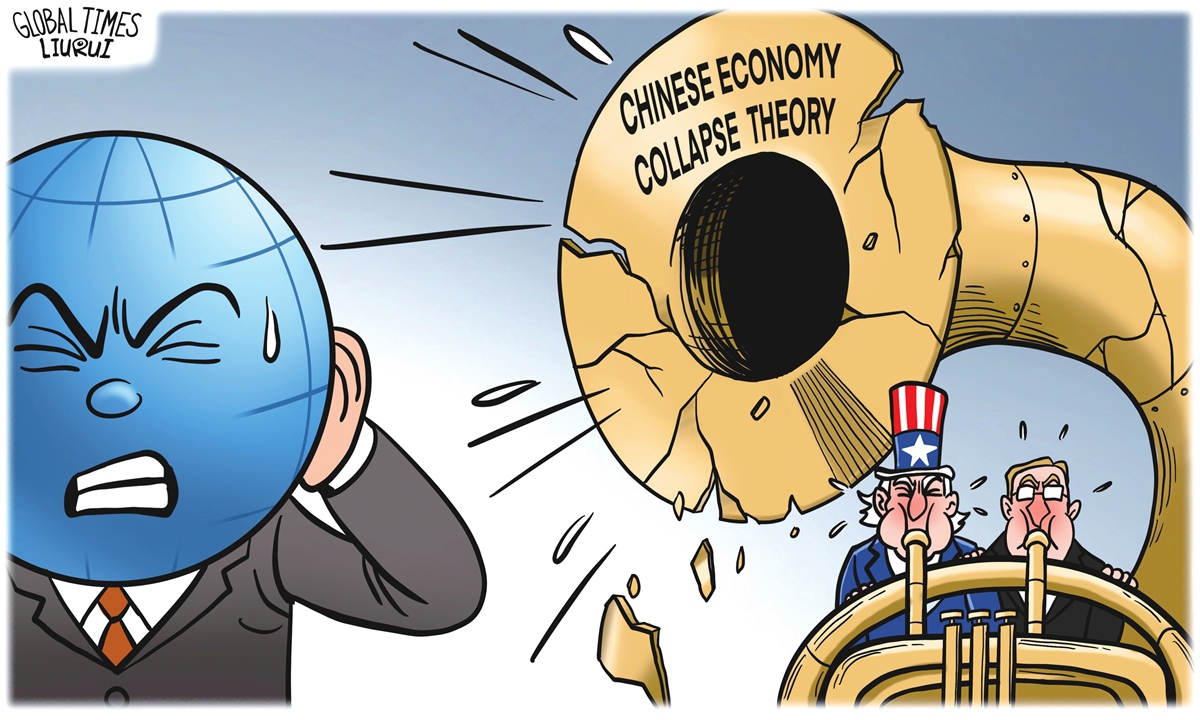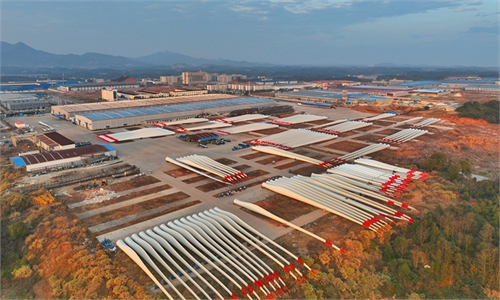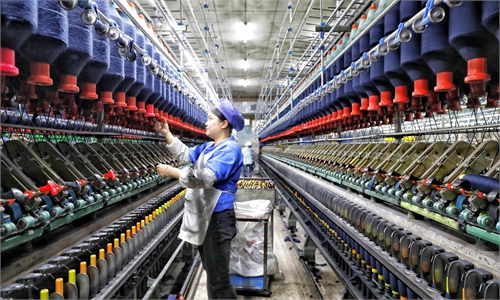What is the cultural foundation for the sustainable growth of the Chinese economy?

Illustration: Liu Rui/GT
For the past two years, the sustainability of China's high-speed economic development has been a hotly debated topic. The Western media's criticism of China's economy is nothing new, dating back nearly 30 years. For researchers specializing in geopolitics, monitoring national economic trends is essential.
China, as the world's second-largest economy, provides a wealth of subjects due to its economic environment. The country's economic growth over the past four decades defies traditional Western economic theories. Many economic predictions about China by mainstream Western institutions and media have been proven wrong.
So, what is the secret behind China's economic development? Four key factors shall be given full consideration: stable and enduring political guarantee, an ever-growing market, an overall and integrated manufacturing system, as well as abundant technological talents and well-trained skillful labor forces. Comparatively speaking, the first two factors are rooted in Chinese tradition and culture.
China is a very populous nation. It is never an easy task to govern such an enormous country with typical social characteristics. Both Chinese history and its present social reality ensure us that strong and effective political leadership is the fundamental guarantee for success in any endeavor. As is said in China, a person without a long-term vision will always be troubled. China's cultural and political traditions dictate the powerful central government must play a fundamentally crucial role in the long-term strategic planning for economic development.
What is the most effective element for contemporary economic development? It is a question that requires continuous consideration. However, no one would deny the vital significance of market needs, because without needs, there will be no growth.
China's market is like an expansive ocean that continues to grow due to the sustainable improvement of living conditions. While storms sometimes may arise, the sea remains steadfast afterward.
Economists often rely on data to support their arguments. However, Chinese philosophical thought suggests that wisdom and truth can be found in our daily lives, rather than in abstract concepts. Chinese people hold very dearly practical needs for life, and we ardently pursue prosperity and well-being in the secular world. This fundamental drive fuels China's sustained economic development, known as the "vitality of the nation."
In my opinion, the main challenge for China's future economic development is not simply sustaining growth, but rather considering what economic progress truly means beyond just GDP growth. Who benefits from this economic development? How do we strike a balance between material and spiritual well-being? How can we achieve harmony between society and the ecological environment? These are the fundamental questions that China must answer in its future development.
While a favorable business environment is conducive to economic growth, it is essential to question whether an economy can be sustainable if it is solely driven by materialism, if it does not benefit the entire population, and if it does not prioritize the protection of the natural ecosystem. These are crucial considerations for China as it continues to develop in the future.
The business environment is a comprehensive reflection of social and ethical conditions, not just economic terms. China's path to modernization, with its unique social characteristics, aims to provide a distinct "Chinese solution." Rooted in classical Chinese cultural thought, the fundamental purpose of the economy is to "manage affairs for the benefit of the people." Constructing a people-centered economy remains paramount. China's road to modernization will never deviate from this core principle of societal development.
On a global scale, our era faces numerous instabilities, some of which pose fundamental crises. As a scholar, I sometimes feel frustrated by the challenge of reaching a consensus with our international colleagues. I always think about how effective communication can be achieved. Few people are genuinely interested in philosophy, but there are some who find solace in the arts. However, the most practical and effective means of communication is trade. Only by coming to China, experiencing China, touching China and engaging with China, can you experience genuine communication. The world is beautiful for its diversity of cultures; the world is promising for our willingness to communicate.
The author is a research fellow of European Studies at Shanghai International Studies University and China Forum expert of the Center for International Security and Strategy at Tsinghua University. This is an excerpt of his speech at the recent Slovenian-Chinese Business Forum. opinion@globaltimes.com.cn


